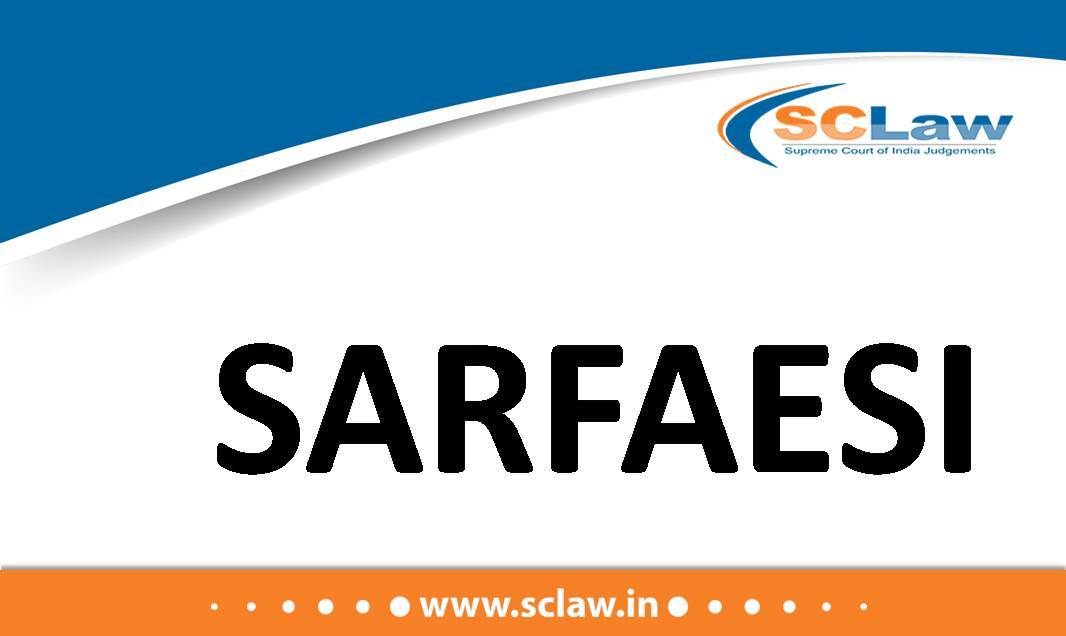Arbitration Act, 1940 – Sections 30, 33 and 39 – Extension of time to execute the contract – Single Judge that there was sufficient justification for the appellant-claimant to have sought extension of time for completing the work and that the decision of the respondent-Union of India to terminate the contract, was not for legitimate reasons.
SUPREME COURT OF INDIA FULL BENCH ATLANTA LIMITED THR. ITS MANAGING DIRECTOR — Appellant Vs. UNION OF INDIA REPRESENTED BY CHIEF ENGINEER MILITARY ENGINEERING SERVICE — Respondent ( Before :…
IBC – Word “such creditor” in Section 29A(h) has to be interpreted to mean similarly placed creditors after the application for insolvency application is admitted by the adjudicating authority. As a result, what is required to earn a disqualification under the said provision is a mere existence of a personal guarantee that stands invoked by a single creditor, notwithstanding the application being filed by any other creditor seeking initiation of insolvency resolution process.
SUPREME COURT OF INDIA DIVISION BENCH BANK OF BARODA AND ANOTHER — Appellant Vs. MBL INFRASTRUCTURES LIMITED AND OTHERS — Respondent ( Before : Sanjay Kishan Kaul and M.M. Sundresh,…
Suit for specific performance – Agreement to sell – whether the agreement to sell in this case is in the teeth of Section 23 of the Contract Act – Contract was unenforceable for reason that it clearly, both expressly and impliedly, would defeat the object of the Rules, which are statutory in nature – Suit specific performance was not maintainable – Appeal allowed.
SUPREME COURT OF INDIA DIVISION BENCH G.T. GIRISH — Appellant Vs. Y. SUBBA RAJU (D) BY LRS AND ANOTHER — Respondent ( Before : K.M. Joseph and Pamidighantam Sri Narasimha,…
A bona fide purchaser long prior to the institution of the suit for specific performance by the Respondent, specific performance could not be enforced against her or her transferees as they would fall within the exception of transferee for value who had paid money in good faith and without notice of the original contract – Appellant would fall within the exception set out in Section 19(b) of the Specific Relief Act, being transferees who had paid money in good faith and without notice of the original contract.
SUPREME COURT OF INDIA DIVISION BENCH SEETHAKATHI TRUST MADRAS — Appellant Vs. KRISHNAVENI — Respondent ( Before : Sanjay Kishan Kaul and M.M. Sundresh, JJ. ) Civil Appeal Nos. 5384-5385…
Companies Act, 2013 – Sections 243, 237(b), 433, 433(a), 433(g), 433(h), 433(i) and 439(1)(f) – Winding up – If the conduct of the affairs of the company in a fraudulent manner is a continuing process, the right to apply winding up becomes recurring: – Main departure of the 2013 Act from the statutory regime of the 1956 Act, is the specific inclusion of fraud, directly as one of the circumstances in which a company could be wound up –
SUPREME COURT OF INDIA DIVISION BENCH DEVAS MULTIMEDIA PRIVATE LIMITED — Appellant Vs. ANTRIX CORPORATION LIMITED AND ANOTHER — Respondent ( Before : Hemant Gupta and V. Ramasubramanian, JJ. )…
Hon’ble Prime Minister Shri Narendra Modi Security Case – Security lapse – Questions cannot be left to be resolved through onesided enquiries – A judicially trained independent mind, duly assisted by officers who are well acquainted with the security considerations and the Registrar General of the High Court who has seized the record pursuant to earlier order, would be best placed
SUPREME COURT OF INDIA FULL BENCH LAWYERS VOICE — Appellant Vs. THE STATE OF PUNJAB AND OTHERS — Respondent ( Before : N.V. Ramana, CJI, Surya Kant and Hima Kohli,…
Securitization and Reconstruction of Financial Assets and Enforcement of Securities Interest Act, 2002 – Sections 13(4) and 17 – Writ petitions against the notice under Section 13(4) of the SARFAESI Act was not required to be entertained by the High Court – Filing of the writ petition by the borrowers before the High Court is nothing but an abuse of process of Court
SUPREME COURT OF INDIA DIVISION BENCH PHOENIX ARC PRIVATE LIMITED — Appellant Vs. VISHWA BHARATI VIDYA MANDIR AND OTHERS — Respondent ( Before : M.R. Shah and B.V. Nagarathna, JJ.…
Declaration of guardian of a minor – Issue regarding custody of a minor child and the issue of the repatriation of the child to the native country has to be addressed on the sole criteria of the welfare of the minor and not on consideration of the legal rights of the parents – if interest of the minor which is the paramount consideration requires that the custody of a minor child should not be with the mother, the Court will be justified in disturbing the custody of the mother even if the age of the minor is less than five years
SUPREME COURT OF INDIA DIVISION BENCH VASUDHA SETHI AND OTHERS — Appellant Vs. KIRAN V. BHASKAR AND ANOTHER — Respondent ( Before : Ajay Rastogi and Abhay S. Oka, JJ.…
Deficiency in service – Failure of builder to obtain the occupation certificate is a deficiency in service – Respondent-builder was responsible for transferring the title to the flats to the society along with the occupancy certificate – Failure of the respondent to obtain the occupation certificate is a deficiency in service – members of society society are well within their rights as ‘consumers’ to pray for compensation as a recompense for the consequent liability (such as payment of higher taxes and water charges by the owners) arising from the lack of an occupancy certificate.
SUPREME COURT OF INDIA DIVISION BENCH SAMRUDDHI CO-OPERATIVE HOUSING SOCIETY LIMITED — Appellant Vs. MUMBAI MAHALAXMI CONSTRUCTION PRIVATE LIMITED — Respondent ( Before : Dr. Dhananjaya Y. Chandrachud and A.S.…
(IPC) – Section 498A – Cruelty – When an offence has been committed by a woman by meting out cruelty to another woman, i.e., the daughter-in-law, it becomes a more serious offence – If a lady, i.e., the mother-in-law herein does not protect another lady, the other lady, i.e., daughter-in-law would become vulnerable – appellant is reported to be approximately 80 years old, sentence reduced.
SUPREME COURT OF INDIA DIVISION BENCH MEERA — Appellant Vs. STATE BY THE INSPECTOR OF POLICE THIRUVOTRIYUR POLICE STATION CHENNAI — Respondent ( Before : M.R. Shah and B.V. Nagarathna,…
















